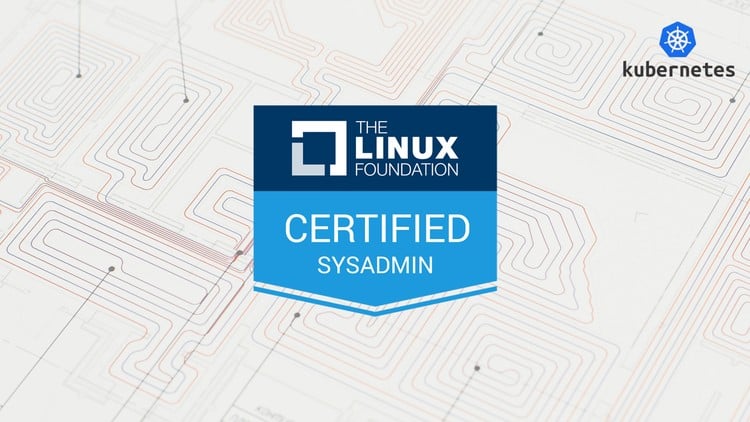
High-quality practice exams to boost confidence, identify weak areas, and prepare you for real test success
⭐ 1.00/5 rating
👥 656 students
🔄 September 2025 update
Add-On Information:
Note➛ Make sure your 𝐔𝐝𝐞𝐦𝐲 cart has only this course you're going to enroll it now, Remove all other courses from the 𝐔𝐝𝐞𝐦𝐲 cart before Enrolling!
- Course Overview
- This comprehensive suite of practice exams is meticulously designed to mirror the rigor and scope of the official Linux Foundation Certified System Administrator (LFCS) certification exams.
- It serves as a crucial stepping stone for aspiring and practicing system administrators seeking to validate their proficiency in managing Linux environments.
- The practice tests are crafted by experienced professionals who understand the nuances of the LFCS curriculum and the types of challenges candidates will face.
- The course focuses on simulating the real exam experience, including time constraints and question formats, to build essential test-taking strategies.
- It offers a realistic assessment of your current knowledge base, allowing for targeted study and improvement.
- The updated content ensures alignment with the latest LFCS objectives and best practices in system administration.
- This is not a tutorial-based course, but rather a performance-driven preparation tool designed for immediate application and skill refinement.
- The objective is to move beyond theoretical knowledge and cultivate practical, hands-on competency expected of a certified Linux administrator.
- Participants will engage with a variety of simulated scenarios that cover the breadth of responsibilities expected in a professional Linux administration role.
- The practice exams are structured to progressively build confidence as users master each section and objective.
- This preparation tool is ideal for those who have already acquired foundational Linux knowledge and are ready to demonstrate their expertise through certification.
- Requirements / Prerequisites
- A foundational understanding of Linux command-line operations is essential.
- Familiarity with core Linux concepts such as file system hierarchy, user management, and process control is assumed.
- Basic knowledge of networking fundamentals within a Linux context is beneficial.
- Access to a Linux environment (physical or virtual) is recommended for hands-on practice, though not strictly required for exam simulation.
- The ability to interpret and execute commands in a terminal emulator is a prerequisite.
- A commitment to dedicated study and practice is crucial for maximizing the benefits of these exams.
- Candidates should have a clear understanding of the specific LFCS certification track they are pursuing (e.g., general Linux, specific distribution).
- While not mandatory, some prior experience with script writing or basic shell scripting can be advantageous.
- A willingness to learn from mistakes and adapt study strategies based on practice exam results is expected.
- Skills Covered / Tools Used
- System Installation & Configuration: Proficiency in installing and configuring Linux operating systems, boot loaders, and package management.
- File System Management: Expertise in partitioning, creating, mounting, and managing file systems, including LVM.
- User and Group Management: Skill in creating, modifying, and deleting users and groups, managing permissions, and sudoers.
- Process Management: Ability to monitor, control, and prioritize processes, including understanding signals and job control.
- Service Management: Competence in starting, stopping, enabling, disabling, and troubleshooting system services using systemd.
- Networking Configuration: Knowledge of configuring network interfaces, IP addressing, DNS resolution, and basic firewall rules.
- Storage Management: Understanding of disk management, RAID configurations, and logical volume management.
- Shell Scripting Fundamentals: Familiarity with basic shell scripting concepts for automation and task execution.
- Log Management and Analysis: Ability to access, interpret, and manage system logs for troubleshooting.
- Security Fundamentals: Understanding of file permissions, user privileges, and basic security practices.
- Performance Monitoring: Skills in using tools to monitor system resource utilization (CPU, memory, disk I/O).
- Virtualization Concepts: Exposure to concepts related to virtual machine management.
- Core Command-Line Utilities: Extensive use of standard Linux utilities like `grep`, `sed`, `awk`, `find`, `tar`, `ssh`, `vim`/`nano`, `systemctl`, `journalctl`, etc.
- Benefits / Outcomes
- Enhanced Confidence: Repeated exposure to exam-style questions significantly boosts test-day confidence and reduces anxiety.
- Precise Weak Area Identification: Detailed performance analytics pinpoint specific topics and skills requiring further attention.
- Optimized Study Plan: Enables creation of a highly efficient, targeted study schedule based on identified knowledge gaps.
- Improved Time Management: Practice under simulated time constraints develops crucial pacing skills for the actual exam.
- Familiarity with Exam Format: Thorough understanding of question types, answer formats, and navigation within the testing interface.
- Validation of Skills: Provides a tangible measure of readiness for the official LFCS certification.
- Increased Employability: LFCS certification is a widely recognized credential that enhances career prospects in IT.
- Practical Skill Application: Reinforces theoretical knowledge through practical, scenario-based challenges.
- Reduced Risk of Failure: Thorough preparation minimizes the likelihood of exam failure, saving time and money.
- Pathway to Advanced Certifications: Serves as a solid foundation for pursuing more advanced Linux certifications.
- Professional Development: Contributes to continuous learning and professional growth in the field of system administration.
- PROS
- Realistic Simulation: Closely mimics the actual LFCS exam environment and question difficulty.
- Targeted Practice: Focuses on identifying and strengthening specific knowledge gaps.
- Up-to-Date Content: Regularly updated to reflect current LFCS exam objectives.
- Cost-Effective Preparation: Generally more affordable than re-taking the actual exam due to insufficient preparation.
- Immediate Feedback: Provides instant results and explanations for incorrect answers.
- CONS
- No Explanatory Content: Primarily practice exams; does not offer in-depth tutorials or learning material for absolute beginners.
Learning Tracks: English,IT & Software,IT Certifications
Found It Free? Share It Fast!